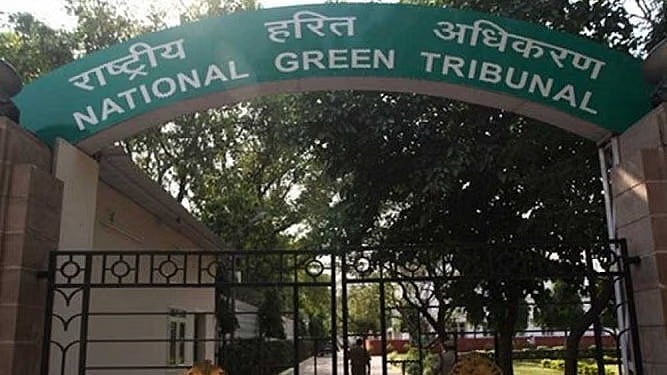
The National Green Tribunal (NGT).
Credit: PTI File Photo
Bengaluru: There is no statutory framework in India that regulates light pollution, the Centre has said in response to a complaint alleging that Artificial Light At Night (ALAN) disrupts natural biological processes, affects wildlife behaviour — especially migratory species — plant physiology, and human circadian rhythms.
The Central Pollution Control Board (CPCB) made the submission in response to an application before the National Green Tribunal (NGT), highlighting the negative impacts of ALAN.
The applicant, Panchtatva Foundation, submitted research literature and articles published between 2009 and 2019 to support its case. These included studies on the impact of light pollution on photosynthetic efficiency in plants, the plight of nocturnal pollinators, and other related issues.
The CPCB acknowledged a regulatory gap in existing laws.
"It is respectfully submitted that while the statutory framework under the aforesaid acts comprehensively addresses pollution arising from water, air, and various waste streams, it does not explicitly encompass the impact of Artificial Light At Night (ALAN)," it said.
However, the board pointed to rules formulated by the Bureau of Indian Standards (BIS), including standards related to artificial lighting in protected cultivation, interior illumination, industrial lighting, and other "safety and performance benchmarks" aimed at promoting product quality and protecting consumer interests.
A bench comprising Justice Prakash Srivastava, Justice Sudhir Agarwal, and expert member Senthil Vel took note of the CPCB's submission. The bench is now awaiting responses from the Ministry of Environment, Forest and Climate Change and the Ministry of Science and Technology.
In July 2023, the NGT had noted the need for a detailed study on various aspects of light pollution. The absence of a dedicated framework has led to unscientific lighting practices, with even a public interest litigation filed before the Bombay High Court.
